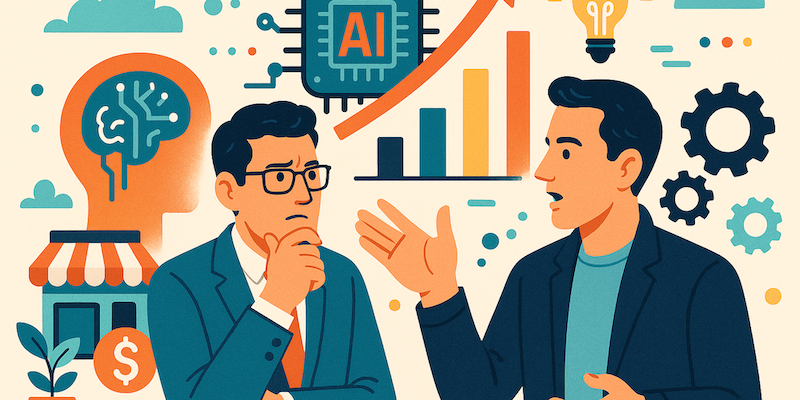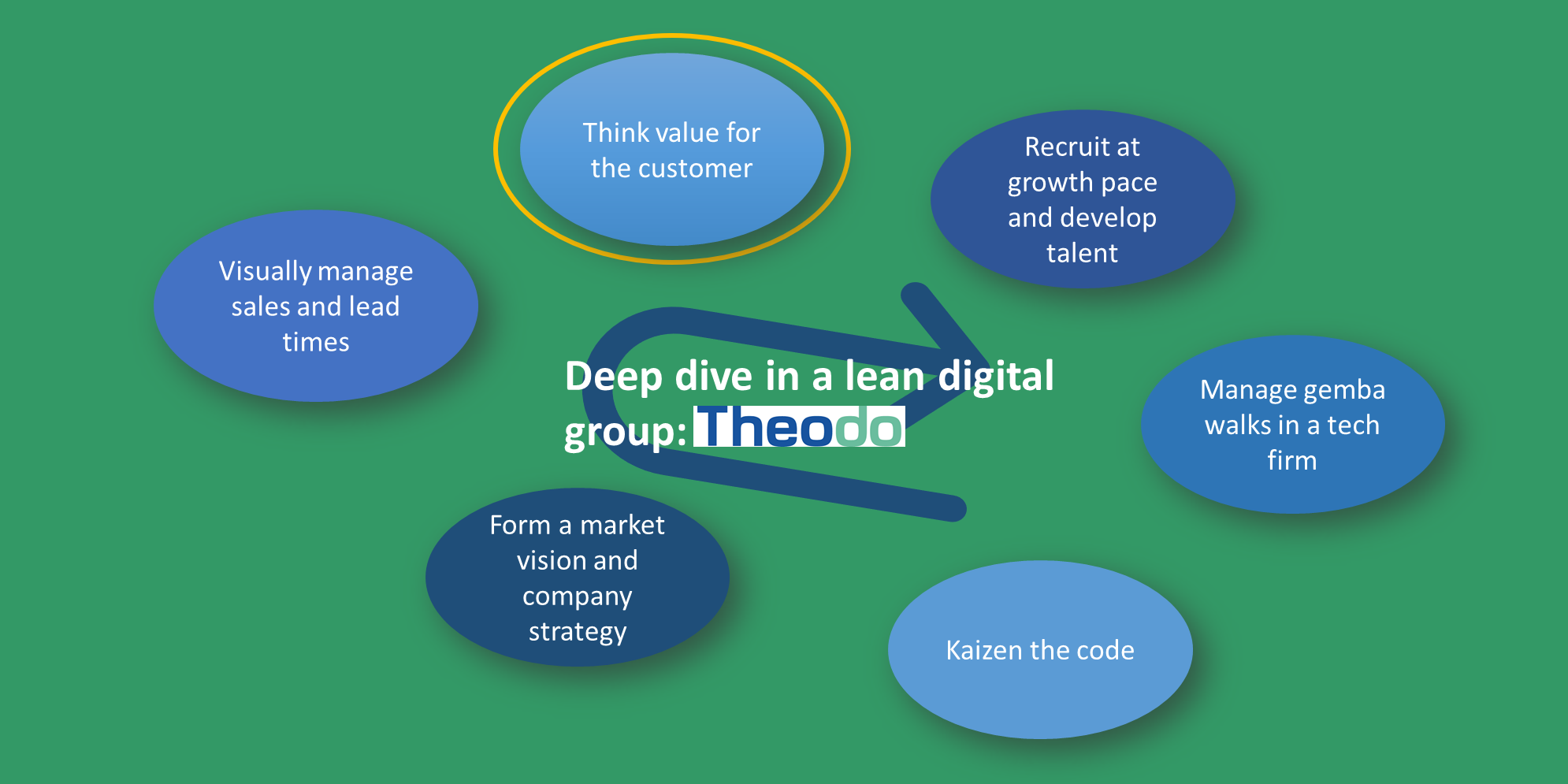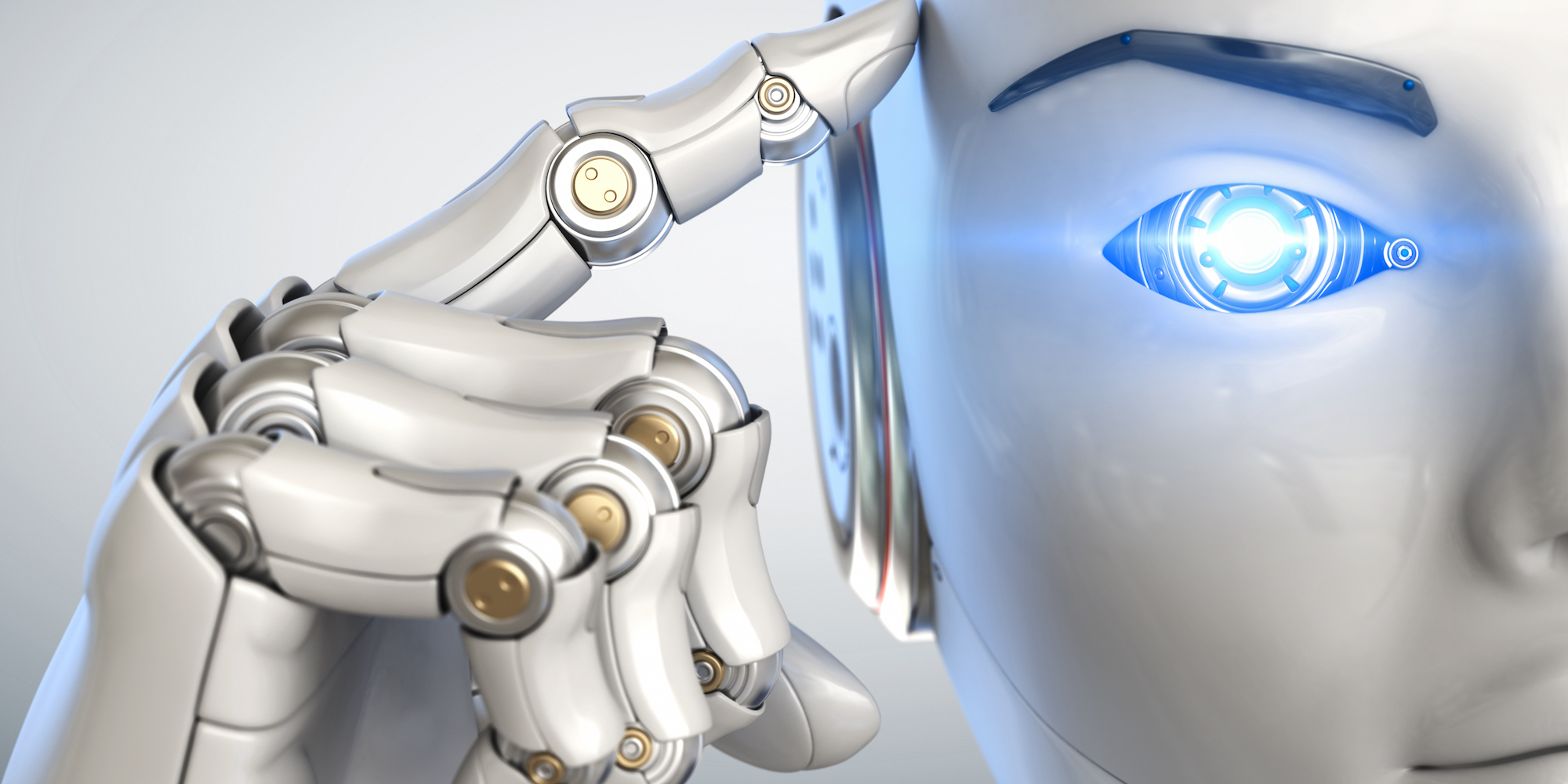
AI, human judgment, and the lean advantage
INTERVIEW – AI will shrink companies and workflows, challenging human relevance. In a world of accelerating technological disruption, Lean Thinking and adaptability are more important than ever.
Interviewee: Theodor Panayotov
Roberto Priolo: What are the main misconceptions about AI that you hear in your conversations or in the public discourse about it?
Theodor Panayotov: One of the most common ones is that your job will not be taken by AI, but rather by someone who uses AI. That’s true, but only for the time being. We're riding an exponential wave, and the relevancy of entire workflows is being put into question. This is already happening in some places in the software industry. Even for complex industrial processes, we are seeing AI designing and printing parts that were never designed by humans. The bottom line - beyond the many misconceptions that exist around Artificial Intelligence - is that we need to accept that we will end up with much smaller companies, run by a few humans who will possibly have AI as a VP. Because of their exponentially growing capabilities, AI models are starting to interact with one another. That leaves us with a question: what’s left for us? And I would say that’s the judgement, expertise, and intuition that sit in our heads.
RP: The question is, how many people will we need to perform the judgment compared to the amount of people that we need today to be marketeers, designers, journalists, translators, and so on?
TP: That's a good point. For the moment, we can expect a resurgence of manual jobs. There is no doubt that plumbers, electricians, or yoga instructors will be less threatened by AI than knowledge workers. That’s until human-scale robots with human capabilities become common.
RP: What can be done in this scenario to at least mitigate the negative effects of AI?
TP: What’s currently allowing companies to ride the wave, rather than being overcome by it - the moat, so to speak - is their unique niche knowledge, coupled with a growth mindset, the best tools for rapid prototyping and development, and, of course, security and data protection.
But the reality is that we are seeing a doubling of AI performance every six months. Things that were science fiction two years ago right now are just common sense (ironically, the one great limitation of AI at the moment is raw materials, because it needs vast amounts of electricity and cooling). We need to accept that we won’t be able to keep this disruption at bay forever and that in some time, within our lifetimes, we won’t be the smartest being on the planet. And then the question becomes how we can avoid becoming irrelevant. Some of the greatest minds are thinking about this deep, almost philosophical problem.
Part of this will be to try to teach AI models morality. Famous experiments have already shown that, because they are modeled after us, when facing an existential threat (“We're going to be deleting you and replacing you with a new version..”) they go into self-preservation mode and tend to lie to save themselves. The only thing separating us humans from AI models at the moment is our ability to have agency, to exercise judgment. As that shifts and they develop their ability as well, we will have to teach them to be good, proper actors.
RP: Let’s move on to something a little closer to Planet Lean’s remit. Lean has always had a bit of a cautious approach to technology, saying it should be used in a context in which it supports human beings rather than replace them altogether. Based on all this, do you think Lean and AI are incompatible or do you see synergies?
TP: I don't think they are incompatible. Because of the capabilities of AI, we are already seeing a shift towards smaller and smaller organizations, and rounds of layoffs. This is particularly evident in the software world, which is increasingly creating more value with less people. What we are missing here, however, is that AI tools also allow us to be more entrepreneurial and creative. Organizations will become smaller - I think that’s inevitable - but the number of organizations isn't limited. So, we should be able to create more value by creating more companies. In many ways, what we need is not more job users - as in, people who are working on a job - but more job creators. In the coming years, we will need to learn how to be continuously adaptable, create better products and services, understand how we can create more value - and these are all things Lean Thinking can help us with. It’s time to explore new frontiers, like Alternative Reality and Virtual Reality (who said that all products need to be limited to the physical world?!), which bring great opportunities and an entire virtual economy. With this in mind, we might have an opportunity to change the paradigm.
Another piece of the puzzle is the education system, which needs to be redesigned entirely. We are developing factory workers for factories that might not exist - at least not in their current form - by the time they complete their studies. To ensure people survive and then thrive in a new economy that is constantly changing, we need to teach them adaptiveness, critical thinking, and experimentation. Again, there’s a clear connection with Lean here.
RP: What would you suggest to companies trying to navigate the complex world of AI? What tools should they use? Where should they start? It’s overwhelming for a lot of people.
TP: It is overwhelming. I’ve been working with AI for a long time. I spent the summer of 2013 at NASA Research Park with futurists like Ray Kurzweil and Ben Goertzel—the guy who coined the term “artificial general intelligence.” So, I had a sense of what was coming. And yet, even I wasn’t fully prepared for how fast things are moving today.
So where should companies start? First, it has to come from the top. Leaders need to think beyond tools and ask deeper questions: Why are we doing this? What value are we creating? That clarity allows space for experimentation—projects won’t survive without executive support.
At the same time, you need to empower people on the ground. Teach them how to use tools, and when not to. Tools like ChatGPT are powerful, but not always appropriate. People are already using them informally—what we now call “shadow AI.” That’s why training and clear guidelines are essential.
Finally, companies must be willing to rethink how they operate. This isn’t just a tech upgrade; it's a business redesign. The old models won’t hold. You need to adapt, top to bottom.
THE INTERVIEWEE

Read more


FEATURE – The lean house can be seen as a blueprint for a transformation. But what happens when CEO or other senior leaders are not aligned with the vision expressed in the roof?


CASE STUDY – This insurtech venture has found in Lean Thinking a way to tackle its many scaling issues. It’s grown from two to fifty-five people in less than four years, ultimately thanks to a strong focus on quality.


FEATURE – In the second article in her new series, the author discusses how focusing on customer value helped a fintech start-up to grow fivefold just last year.


FEATURE – We spend a lot of time talking about innovation, but what is the actual impact of leveraging lean to achieve it? As the author points out, the potential is huge, provided certain conditions are met.
Read more


OPINION – DeepSeek’s AI innovations can be compared to the disruption Toyota brought to automotive, showcasing efficiency, problem-solving, and value-driven adaptability over resource-intensive methods.


FEATURE – This year, PL will try to understand what the future of work looks like in a world with AI. To kick us off and make us think, we publish an article that is the result of a one-hour conversation between a human and a machine.


FEATURE - To get on a path of sustainable growth, an organization must get to know its customers... and there is no better way of doing so than embracing and analyzing their complaints.


OPINION – A new publicly owned open-source technology promises to make direct, unmediated trade relations trustworthy, opening the door to an era of democratization and cooperation in global commerce.

